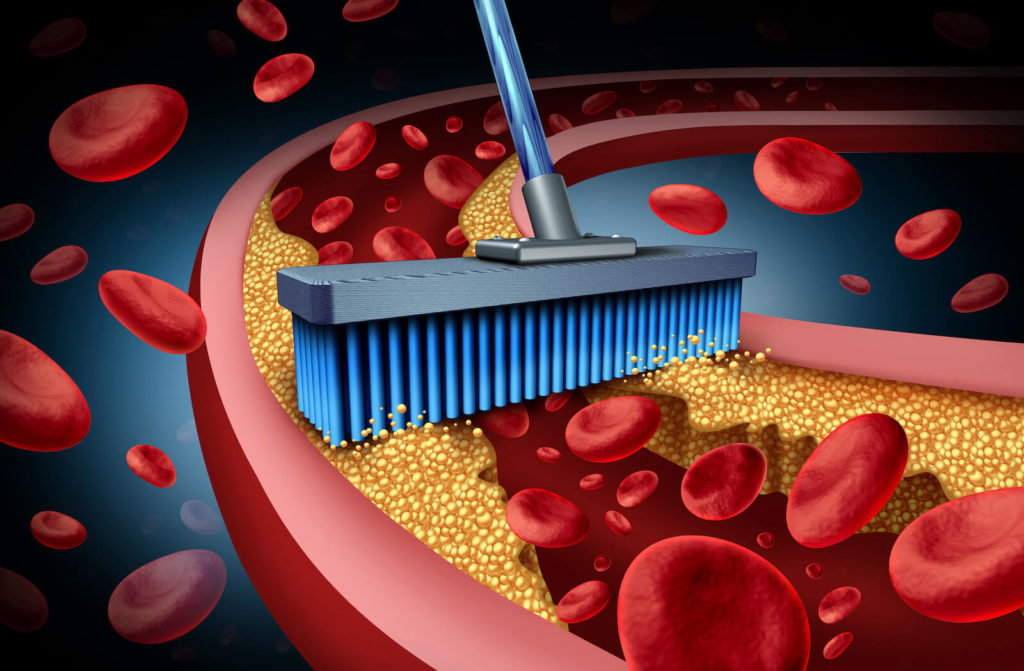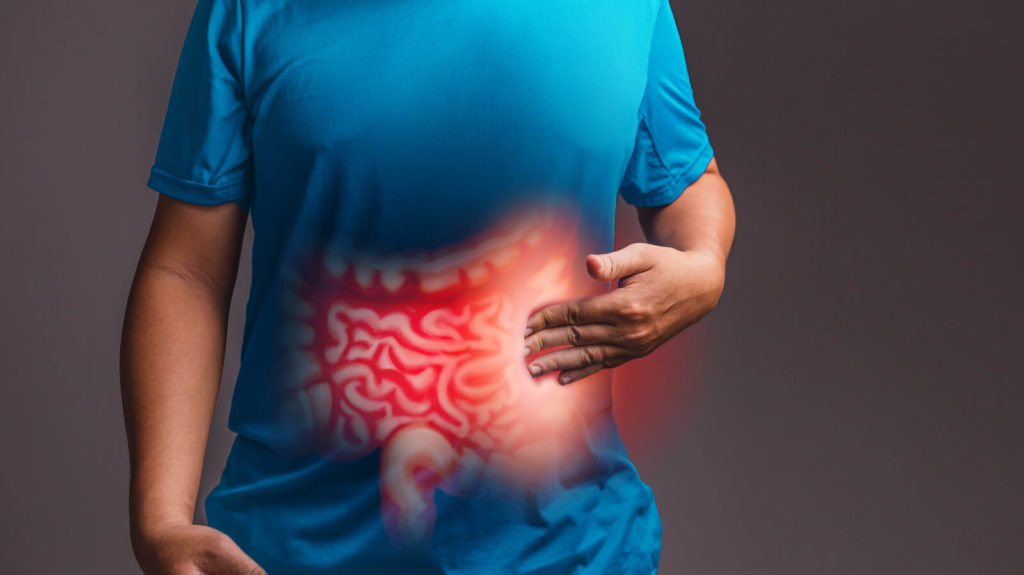Modified Citrus Pectin: Your Guide to Benefits, Risks, and Usage
Dr. Michael Ruscio is a DC, Naturopathic Practitioner, researcher, and clinician. He serves as an Adjunct Professor at the University of Bridgeport and has published numerous papers in scientific journals as well as the book Healthy Gut, Healthy You. He also founded the Ruscio Institute of Functional Health, where he helps patients with a wide range of GI conditions and serves as the Head of Research.Modified Citrus Pectin Benefits for Heavy Metal Detox and Beyond
- What Is Modified Citrus Pectin?|
- Benefits of Modified Citrus Pectin|
- Removing Toxic Metals|
- Slowing Heart Disease|
- Fighting Cancer|
- Reducing Diarrhea in Irritable Bowel Syndrome|
- Increasing Sepsis Survival |
- Improving Cognition|
- Side Effects|
Modified citrus pectin (MCP), a type of supplemental dietary fiber (a polysaccharide) made from the pulp of citrus fruits, offers a wide range of possible benefits from slowing or preventing heart disease and cancer growth to healing the gut wall and improving cognition.
It even may act as a natural chelator, helping to safely bind and remove excess toxic metals from the body.
While research on the benefits of this dietary supplement is limited, it’s also promising. In this article, we will explore the various benefits of modified citrus pectin, consider how this supplement could work as an alternative to more invasive forms of chelation therapy, and look at the possible side effects in order to help you to make the right decision for you when it comes to this supplement.
What Is Modified Citrus Pectin?

Natural pectin is something that we’re all familiar with, even if we don’t know what it’s called. This is the spongy pulp found in the peels of citrus fruits such as oranges, limes, lemons, and grapefruit, as well as in apples and plums.
But there are some differences between these natural pectins and the MCP variety. Our intestines can’t absorb pectin directly from fruits. But the modified version has shorter carbohydrate chains and a lower molecular weight [1], allowing it to be absorbed into the bloodstream where it can then potentially exert benefits.
Benefits of Modified Citrus Pectin
The potential benefits of modified citrus pectin include:
- Chelating toxic metals from the body
- Slowing heart disease
- Slowing or preventing cancer growth
- Preventing diarrhea for IBS patients
- Helping to improve survival rates in sepsis
- Improving cognitive health
To find out more about MCP treatment and its potential health benefits, we’ll take a closer look at the research we have so far.
Most of the studies that have been published so far on the health benefits of MCP are observational, small, or otherwise limited, so take these with a grain of salt. However, preliminary research is promising. Let’s take a closer look at some of the specific benefits modified citrus pectin may offer.
Removing Toxic Metals

Modified citrus pectin may act as a natural chelating agent, helping to remove excess heavy metals from the body. Using MCP for heavy metal detoxification is appealing due to the fact that it may have fewer side effects and be less invasive than other types of chelation therapy.
For example, although other chelating agents can effectively remove toxic metals (such as lead) from the body, they can also lower zinc levels, causing a deficiency, particularly in small children [2].
But the loss of important minerals may not occur with use of modified citrus pectin, as evidenced by a recent study on urinary excretion of toxic elements in healthy individuals.
In this pilot study, 15 grams of MCP (this study used PectaSol by EcoNugenics Inc.) taken orally did not increase the loss of calcium, magnesium, zinc, selenium or iron. But it did decrease toxic arsenic, cadmium, and lead levels [3].
There were also no negative side effects observed in a clinical trial involving children with lead toxicity in China. For three months, the hospitalized children between the ages of 5 and 12 were given 15 g of MCP in three divided doses a day [4].
This was actually a large dose, so the fact that it was tolerated well by children is encouraging. The dose of MCP used in this study was equivalent to one scoop of Pectasol-C modified citrus pectin three-times daily for three months. (In our practice, we treat adults with one scoop twice daily for between 45 and 90 days, which we have found effective at lowering serum lead levels.)
Slowing Heart Disease
Pectin in both its unmodified and modified form may help to prevent heart disease.
One randomized clinical trial with 125 participants who had mild to moderate high LDL (low-density lipoprotein) cholesterol found that use of guar gum plus pectin helped to normalize cholesterol levels.
Taking this combination for up to 51 weeks led to a 12.1% reduction of unhealthy LDL compared to just 1.3% for placebo. Total cholesterol was also 8.5% lower compared to 0.8%, and the LDL compared to HDL ratio was 9.4% lower compared to 1.5% higher for those in the placebo group [5].
Another randomized control trial concluded that at least 6 grams a day of pectin benefited cholesterol levels [6]. This trial also showed that citrus pectin was more effective than pectin derived from apples.
When it comes to other markers of heart disease, MCP may be less effective. A 2021 randomized controlled trial of 68 patients with hypertension, found that MCP had no effect on cardiac fibrosis or heart or vascular function in those at risk for heart failure. Negative gastrointestinal events were also common among those taking MCP [7].
Fighting Cancer

Modified citrus pectin has also shown promise in oncology. Studies have found that this dietary supplement may stop cancer cells from spreading [8, 9]. It keeps the proliferation of cancer cells down both in vitro (test tube) and in vivo (within the living). This is thought to be due to MCP’s ability to cause apoptosis (cell death) in these tumor cells.
One promising study of 49 patients with advanced solid tumors found that MCP stabilized cancer progression and improved quality of life with no severe side effects [8]. Those in the pilot study were given MCP three times a day for two months.
Of all 49 patients, 22.5% had stabilized cancer and 12.3% were stable for longer than six months. One patient with metastasized prostate cancer had 50% fewer prostate-specific antigen (PSA) in his system after 16 weeks on modified citrus pectin. PSA levels may indicate the likelihood of prostate cancer progression [8].
Also, in another small clinical study involving 13 men with prostate cancer who were resistant to surgery, radiation, and cryotherapy, treatment results showed that in 70% of the men, taking MCP for 12 months increased the time it took for the PSA numbers to double from baseline. This suggests that the tumor growth progressed significantly more slowly than it would otherwise [10].
MCP may also help with the activation of natural killer cells, as well as T-cytotoxic cells, helping the immune system to fight leukemia [11].
MCP is also rich in a substance called galactose, which keeps another substance called galectin-3 at bay. Galectin-3 is a binding protein that plays a big role in tumor formation and progression. MCP may help to suppress cancer cells from grouping together, forming adhesions, or developing a metastasis by acting as a ligand — a substance that binds to another chemical to form something larger. By binding to the galectin-3, it can inhibit it from doing other damage [11].
Reducing Diarrhea in Irritable Bowel Syndrome

Modified citrus pectin may help to combat diarrhea associated with irritable bowel syndrome (IBS).
A randomized controlled trial involving 87 patients with IBS and diarrhea symptoms showed that those who took daily pectin had significantly fewer symptoms, more formed stools, and better quality of life than those who took placebo.
Researchers here found that the pectin acted as a prebiotic, stimulating good gut bacteria such as bifidobacteria and decreasing total Clostridium sp. By balancing this microflora, MCP helped to relieve inflammation and alleviate clinical symptoms [12].
MCP may also help to improve the permeability of the gut wall (“leaky gut”). In one randomized clinical trial, 57 male infants with diarrhea were fed either pectin, a green banana, or a rice diet.
Both the green banana and the pectin significantly improved intestinal permeability and also reduced diarrhea [13].
Increasing Sepsis Survival
For cases of sepsis, which involves toxicity from pathogenic microorganisms in the blood organs, or other tissues, MCP may lower death rates. A 2021 study looked at the involvement of galectin-3 (a protein associated with an increased risk of sepsis) and found that MCP was an inhibitor of this substance.
For those who took modified citrus pectin, death rates went from 61% to 28% when taking 400 mg or down to 22% when taking 1200 mg.
What’s more, MCP also lowered the rate of acute kidney injury, which went from 89% in the control group to 44% in both groups taking the modified pectin [14].
Improving Cognition
Modified citrus pectin may play a role in improving brain function. The research here, however, is very preliminary. It once again goes back to MCP’s potential role involving inhibition of galectin-3. In a 2020 observation study of 134 patients with Type 2 diabetes, in which 65 individuals had mild cognitive impairments, researchers found that galectin-3 may be associated with this impairment.
Meanwhile, animal studies have shown that MCP can reduce galectin-3 levels in rats [15]. Could the same be true for humans? And could MCP therefore help to lower galectin-3 levels and improve thinking? Possibly. But of course, further study is needed here.
Side Effects of Modified Citrus Pectin
Not unlike most substances, there can be potential downsides to taking modified citrus pectin. MCP’s main side effects include cramping and diarrhea. These generally resolve once MCP is discontinued [5, 7, 10].
In my clinical experience, those with mycotoxicity (mold toxicity) often have trouble tolerating modified citrus pectin. This may be because MCP has the ability to bind to mycotoxins (like it binds to and removes metals), which could then lead to increased symptoms as the toxins are being released.
If you’re concerned about possible sensitivities to MCP, consult with your practitioner before use, and start with a lower dose to see how your body responds.
The Bottom Line on Modified Citrus Pectin
While research is preliminary, modified citrus pectin has the potential to offer benefits for heart disease, cancer, IBS, and even cognition. It may also act as a natural chelating agent, helping individuals to safely detoxify from heavy metals.
Hopefully, this dietary supplement will ultimately be one that lives up to its promise. In the meantime, we will continue to keep an eye on all this has to offer.
For more individualized guidance, our functional medicine clinic is here to help.
➕ References
- Eliaz I, Raz A. Pleiotropic effects of modified citrus pectin. Nutrients. 2019 Nov 1;11(11). DOI: 10.3390/nu11112619. PMID: 31683865. PMCID: PMC6893732.
- George T, Brady MF. Ethylenediaminetetraacetic Acid (EDTA). In: StatPearls. Treasure Island (FL): StatPearls Publishing; 2021. PMID: 33351441.
- Eliaz I, Hotchkiss AT, Fishman ML, Rode D. The effect of modified citrus pectin on urinary excretion of toxic elements. Phytother Res. 2006 Oct;20(10):859–64. DOI: 10.1002/ptr.1953. PMID: 16835878.
- Zhao ZY, Liang L, Fan X, Yu Z, Hotchkiss AT, Wilk BJ, et al. The role of modified citrus pectin as an effective chelator of lead in children hospitalized with toxic lead levels. Altern Ther Health Med. 2008 Aug;14(4):34–8. PMID: 18616067.
- Knopp RH, Superko HR, Davidson M, Insull W, Dujovne CA, Kwiterovich PO, et al. Long-term blood cholesterol-lowering effects of a dietary fiber supplement. Am J Prev Med. 1999 Jul;17(1):18–23. DOI: 10.1016/s0749-3797(99)00039-2. PMID: 10429748.
- Brouns F, Theuwissen E, Adam A, Bell M, Berger A, Mensink RP. Cholesterol-lowering properties of different pectin types in mildly hyper-cholesterolemic men and women. Eur J Clin Nutr. 2012 May;66(5):591–9. DOI: 10.1038/ejcn.2011.208. PMID: 22190137.
- Lau ES, Liu E, Paniagua SM, Sarma AA, Zampierollo G, López B, et al. Galectin-3 Inhibition With Modified Citrus Pectin in Hypertension. JACC Basic Transl Sci. 2021 Jan 6;6(1):12–21. DOI: 10.1016/j.jacbts.2020.10.006. PMID: 33532663. PMCID: PMC7838053.
- Azémar M, Hildenbrand B, Haering B, Heim ME, Unger C. Clinical Benefit in Patients with Advanced Solid Tumors Treated with Modified Citrus Pectin: A Prospective Pilot Study. Clin Med Oncol. 2007 Jan;1:CMO.S285. DOI: 10.4137/CMO.S285.
- Ried K, Eng P, Sali A. Screening for circulating tumour cells allows early detection of cancer and monitoring of treatment effectiveness: an observational study. Asian Pac J Cancer Prev. 2017 Aug 27;18(8):2275–85. DOI: 10.22034/APJCP.2017.18.8.2275. PMID: 28843267. PMCID: PMC5697492.
- Guess BW, Scholz MC, Strum SB, Lam RY, Johnson HJ, Jennrich RI. Modified citrus pectin (MCP) increases the prostate-specific antigen doubling time in men with prostate cancer: a phase II pilot study. Prostate Cancer Prostatic Dis. 2003;6(4):301–4. DOI: 10.1038/sj.pcan.4500679. PMID: 14663471.
- Ramachandran C, Wilk BJ, Hotchkiss A, Chau H, Eliaz I, Melnick SJ. Activation of human T-helper/inducer cell, T-cytotoxic cell, B-cell, and natural killer (NK)-cells and induction of natural killer cell activity against K562 chronic myeloid leukemia cells with modified citrus pectin. BMC Complement Altern Med. 2011 Aug 4;11:59. DOI: 10.1186/1472-6882-11-59. PMID: 21816083. PMCID: PMC3161912.
- Xu L, Yu W, Jiang J, Feng X, Li N. [Efficacy of pectin in the treatment of diarrhea predominant irritable bowel syndrome]. Zhonghua Wei Chang Wai Ke Za Zhi. 2015 Mar;18(3):267–71. PMID: 25809332.
- Rabbani GH, Teka T, Saha SK, Zaman B, Majid N, Khatun M, et al. Green banana and pectin improve small intestinal permeability and reduce fluid loss in Bangladeshi children with persistent diarrhea. Dig Dis Sci. 2004 Mar;49(3):475–84. DOI: 10.1023/b:ddas.0000020507.25910.cf. PMID: 15139502.
- Sun H, Jiang H, Eliaz A, Kellum JA, Peng Z, Eliaz I. Galectin-3 in septic acute kidney injury: a translational study. Crit Care. 2021 Mar 18;25(1):109. DOI: 10.1186/s13054-021-03538-0. PMID: 33736691. PMCID: PMC7977587.
- Ma S, Li S, Lv R, Hou X, Nie S, Yin Q. Prevalence of mild cognitive impairment in type 2 diabetes mellitus is associated with serum galectin-3 level. J Diabetes Investig. 2020 Sep;11(5):1295–302. DOI: 10.1111/jdi.13256. PMID: 32196999. PMCID: PMC7477520.

Discussion
I care about answering your questions and sharing my knowledge with you. Leave a comment or connect with me on social media asking any health question you may have and I just might incorporate it into our next listener questions podcast episode just for you!